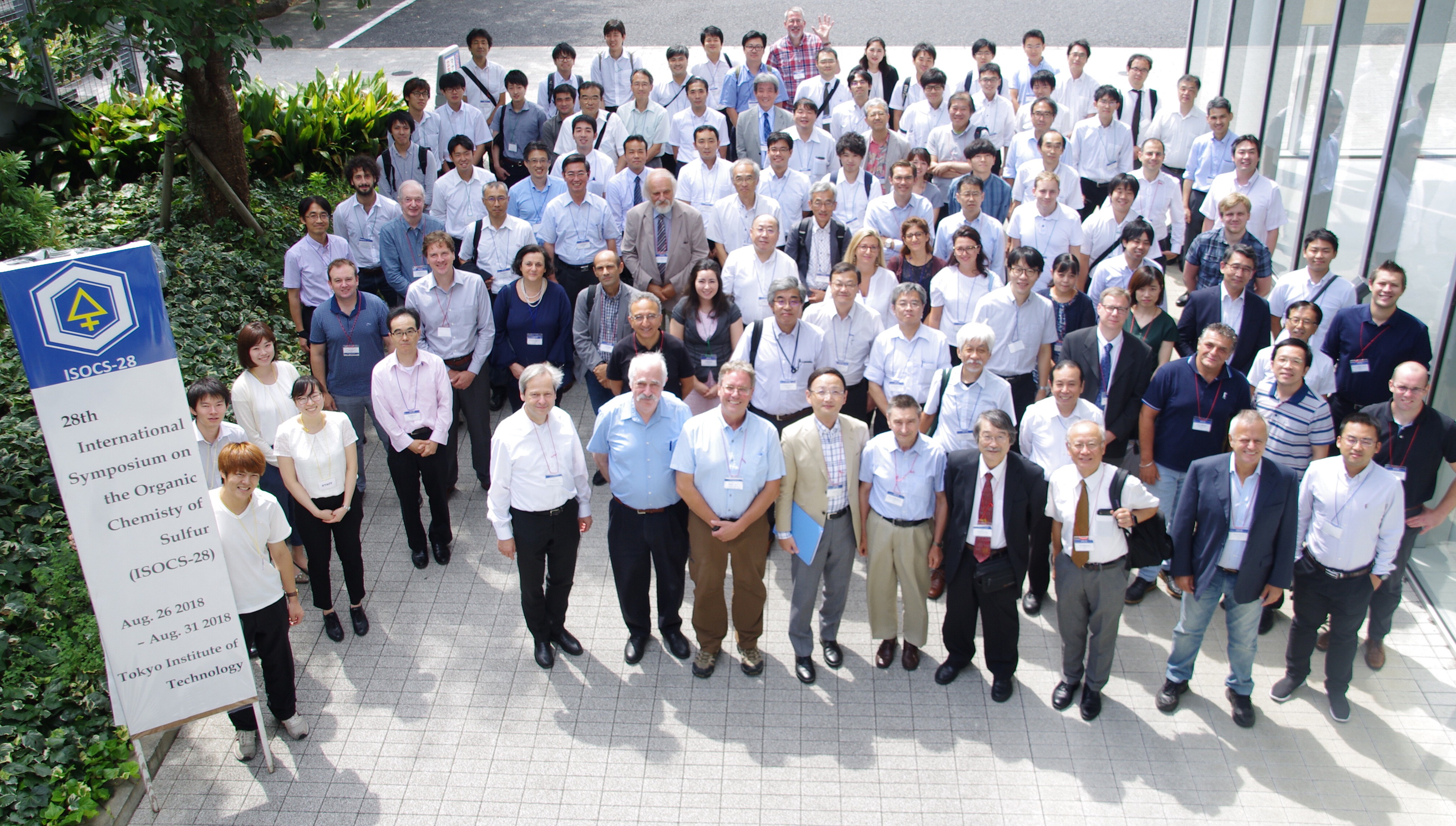The 28th International Symposium on the Organic Chemistry of Sulfur (ISOCS-28) was held at the Tokyo Institute of Technology (Japan) from 26th to 31st August 2018. Since their inception in 1964 in Liblice (now: Czech Republic; at the time: Czechoslovakia), ISOCS symposia have established themselves as highly prestigious international scientific events that are held every two years at various places around the globe. The preceding symposium (ISOCS-27) was organized in Jena (Germany) in 2016 by Prof. Wolfgang Weigand, and the next symposium (ISOCS-29) will be organized in Guelph (Canada) in 2020 by Prof. Adrian L. Schwan.
ISOCS-28 was the third ISOCS meeting in Japan, following ISOCS-17 (1996 in Tsukuba) and ISOCS-22 (2006 in Saitama). ISOCS-28 attracted more than 200 academic and industrial participants from all around the globe, including guests from Canada, China, Denmark, France, Germany, India, Italy, Korea, Poland, Taiwan, Turkey, UK, USA, and of course Japan. In this context, especially the large participation of graduate students, post-docs, and other young researchers should be noted positively. The scientific program of ISOCS-28 covered the entire fascinating spectrum of sulfur chemistry from synthesis, theory, mechanisms, stereochemistry, bioorganic and medicinal chemistry, advanced materials and nanotechnology, heterocycles, coordination chemistry, spectroscopy, and ecological aspects to industrial applications. During ISOCS-28, six plenary and 20 invited lectures were presented, together with 34 oral papers and 83 poster communications. The latest developments regarding all aspects of sulfur chemistry were presented by internationally leading experts, which demonstrated that the organic chemistry of sulfur has rapidly evolved in recent years. Many important organosulfur compounds and renowned sulfur-based synthetic reactions have been revisited by aspiring researchers and developed into innovative chemical transformations and applications in materials science. ISOCS-28 thus highlighted the emergence of new aspects in this field and provided ample opportunities for researchers with diverse expertise to come together for stimulating interdisciplinary discussions on sulfur chemistry.
In addition to the dissemination of the latest innovations in this area, one important feature of the ISOCS meetings is their strong commitment to the fundamental aspects of sulfur chemistry. Hence, it was our great pleasure to organize the special sessions in celebration of the outstanding achievements of Prof. Eric Block and Prof. Marian Mikołajczyk, two prominent researchers that have made invaluable contributions to the foundations of contemporary sulfur chemistry.
The organizers of the symposium would like to express their sincerest gratitude to all the researchers who have contributed to the success of this meeting by presenting lectures, oral communications, or posters. Moreover, I would like to thank the International Organizing Committee for their important contributions and their useful comments on the scientific content, the Domestic Organizing Committee (especially vice-chairs Professors Akihiko Ishii, Toshikazu Takata, Toshiaki Murai, and Hideki Yorimitsu), the Symposium Secretary Dr. Shohei Sase, and my research group for their invaluable help in the organization of ISOCS-28.
I hope that this special issue of Phosphorus, Sulfur, Silicon and the Related Elements will provide stimuli for new research projects and contribute to demonstrate the importance of sulfur chemistry in the development of novel achievements in various areas of academic and industrial research. I would like to extend my special thanks to the Editor-in-Chief Prof. Martin D. Rudd for all his help in realizing this special issue, and to Prof. Hideki Yorimitsu for kindly accepting an invitation to serve as Guest Editor.
Kei Goto
Chair ISOCS-28
Tokyo Institute of Technology

Group Photo of ISOCS-28 participants
August 26th – 31st 2018
Tokyo, Japan
